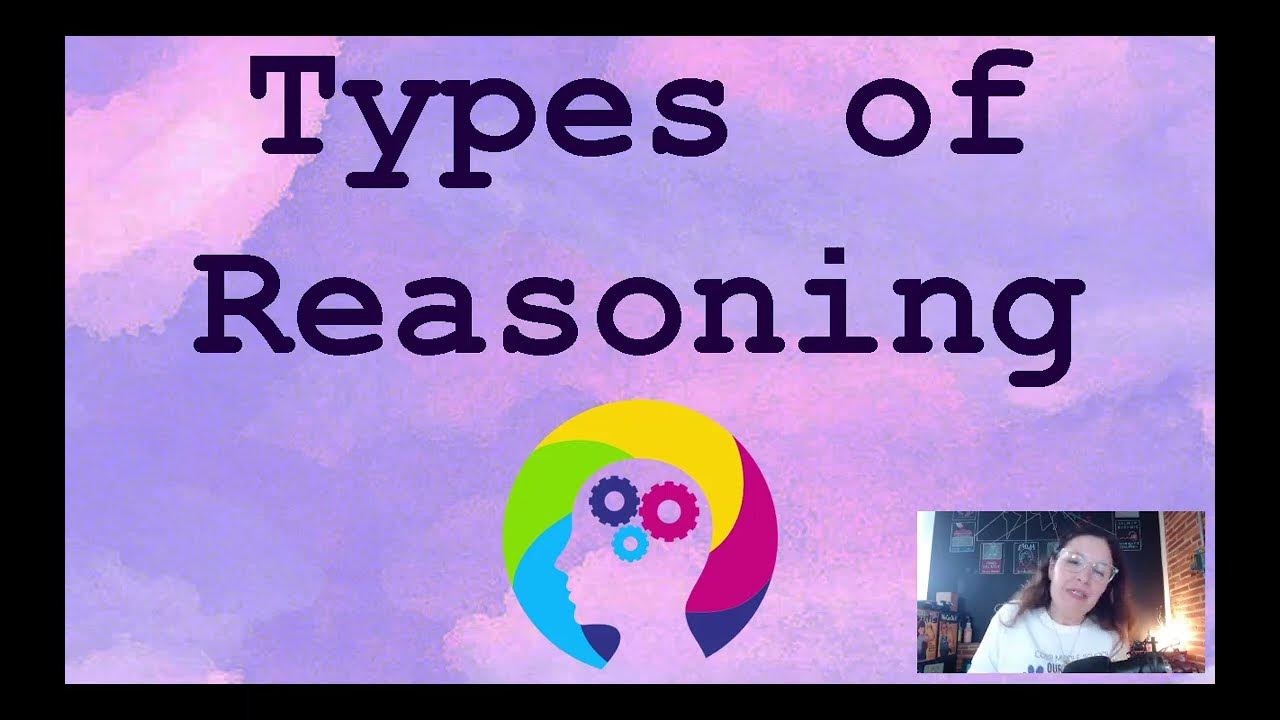How to Argue - Induction & Abduction: Crash Course Philosophy #3
Summary
TLDRThis Crash Course Philosophy episode explores inductive and abductive reasoning, essential tools in philosophy and everyday life. Inductive reasoning predicts future events based on past patterns, though it offers no certainty. Abduction, or inference to the best explanation, involves eliminating impossible scenarios to arrive at the most plausible conclusion. The episode also discusses the Socratic method, emphasizing the pursuit of truth over winning arguments, and introduces the concept of counterarguments in philosophical discourse.
Takeaways
- 🧠 Induction is a method of reasoning that relies on the predictability of nature, using past experiences to predict future outcomes.
- 💊 The example of aspirin illustrates inductive reasoning, where past effectiveness is used to predict future relief from headaches.
- 🎬 Inductive reasoning can also apply to non-scientific matters, such as predicting enjoyment of a new Marvel movie based on past experiences.
- 🔮 Unlike deductive reasoning, which provides certainty, inductive reasoning only offers probabilities and potential for false results.
- 🤔 The problem of induction is highlighted by the potential for the future to differ from the past, as patterns can have exceptions.
- 💎 Nelson Goodman's 'grue' thought experiment demonstrates the potential flaws in inductive reasoning by showing contradictory conclusions.
- 🕵️♂️ Abduction, or 'inference to the best explanation,' is a reasoning method that involves eliminating impossible explanations to find the most plausible one.
- 🧩 Abduction is useful in situations where there is incomplete or unclear evidence, such as medical diagnosis or detective work.
- 📚 The Socratic method involves a dialogue between interlocutors, where counterarguments are used to refine and strengthen beliefs towards the truth.
- 🏆 Philosophical arguments aim not to 'win' but to discover truth, with counterarguments serving as a tool for eliminating falsehoods.
- 🌐 Squarespace is highlighted as a sponsor, offering easy website creation for sharing passions and ideas without the need for coding.
Q & A
What is the main focus of the Crash Course Philosophy episode discussed in the transcript?
-The main focus of the episode is on the types of philosophical reasoning, specifically inductive and abductive reasoning, and how they are used to make predictions and arguments in philosophy and everyday life.
How does the script define inductive reasoning?
-Inductive reasoning is defined as a method that relies on the predictability of nature to suggest that the future is likely to resemble the past, often in important ways. It works in terms of probabilities and does not provide certainty but rather likelihood of being true.
What is an example of inductive reasoning provided in the script?
-An example given is the belief that aspirin will cure a headache because countless aspirin tablets have cured countless headaches in the past.
What is the difference between deductive and inductive reasoning as per the script?
-Deductive reasoning provides certain answers based on general information leading to a specific conclusion, often something that is kind of obvious. In contrast, inductive reasoning starts with specific observations and makes broader generalizations or predictions about the future.
What is the problem with inductive reasoning as highlighted in the script?
-The problem with inductive reasoning is that it does not guarantee accurate results because the future does not always resemble the past, and every pattern has its outliers, leading to the potential for false conclusions.
Can you explain the concept of 'grue' introduced by Nelson Goodman as per the script?
-The concept of 'grue' is a thought experiment by Nelson Goodman to illustrate the problems of induction. Gruesome objects are green before a certain time 't' and blue after it. It demonstrates how inductive reasoning can lead to contradictory conclusions based on the same evidence.
What is abduction as described in the script?
-Abduction, also known as 'inference to the best explanation,' is a reasoning process that involves eliminating possible explanations until the most plausible one is left, given the evidence at hand. It does not provide certainty but is useful for puzzling situations with unclear evidence.
How does the script relate abduction to Sherlock Holmes?
-The script quotes Sherlock Holmes from 'The Sign of the Four' who said, 'When you have eliminated the impossible, whatever remains, however improbable, must be the truth.' This is an example of abduction, where the most plausible explanation is chosen after ruling out the impossible ones.
What is a counterargument according to the script?
-A counterargument is an argument offered in opposition to another argument. It is used in philosophical discussions to challenge a conclusion and is part of the process of refining beliefs and getting closer to the truth.
What is the Socratic method and how does it relate to philosophical arguments?
-The Socratic method is a form of dialogue popularized by Socrates that aims to bring interlocutors closer to the truth through the exchange of ideas and arguments. It is not about winning but about finding truth, and counterarguments are seen as a way to refine beliefs rather than defeat an opponent.
How does the script describe the role of counterarguments in philosophical discussions?
-The script describes counterarguments as essential to philosophical discussions. They are used to challenge conclusions and refine beliefs. A good philosopher appreciates a counterargument that they cannot respond to, as it helps them reject false beliefs and build stronger ones.
Outlines

このセクションは有料ユーザー限定です。 アクセスするには、アップグレードをお願いします。
今すぐアップグレードMindmap

このセクションは有料ユーザー限定です。 アクセスするには、アップグレードをお願いします。
今すぐアップグレードKeywords

このセクションは有料ユーザー限定です。 アクセスするには、アップグレードをお願いします。
今すぐアップグレードHighlights

このセクションは有料ユーザー限定です。 アクセスするには、アップグレードをお願いします。
今すぐアップグレードTranscripts

このセクションは有料ユーザー限定です。 アクセスするには、アップグレードをお願いします。
今すぐアップグレード関連動画をさらに表示

Penalaran Deduktif, Induktif, dan Abduktif - Informatika SMK Kelas 10

How to Argue - Philosophical Reasoning: Crash Course Philosophy #2

Kuliah Filsafat Ilmu || Proses Perolehan Pengetahuan || Part 2

Types of Reasoning - Deductive, Inductive, and Abductive

Thinking Skillfully: Induction vs. Deduction, ULTIMATE tools from the Scientific Method & Philosophy

Deductive and Inductive Reasoning (Bacon vs Aristotle - Scientific Revolution)
5.0 / 5 (0 votes)
